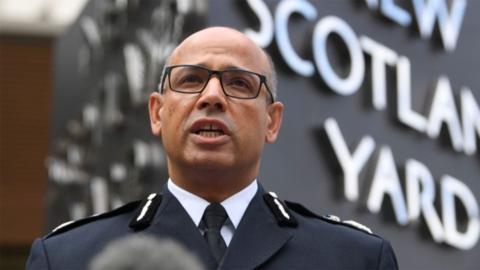Panorama has spoken to a former Met Police firearms officer who believes 24-year-old Chris Kaba would have survived the police operation to carry out an armed stop on the night of 5 September 2022, were it not for the unexpected intervention of the police car containing Sgt Blake.
Mr Kaba was shot in the head after he tried to ram his way out of a police vehicle stop in south London. No firearms were recovered from the Audi he was driving.
The Audi had been linked to a reported drive-by shooting the previous day.
During his trial, Sgt Blake said it was his genuinely held belief that there was an imminent threat to life and that he had not intended to kill Mr Kaba.
Mr Naseem led the investigation for the police watchdog, the Independent Office for Police Conduct (IOPC). This is the first time he has spoken publicly about the Kaba case.
“A police officer can only use lethal force when it’s absolutely necessary,” he says. At the point the weapon was fired, Mr Naseem says that he did not think that appeared to be the case.
